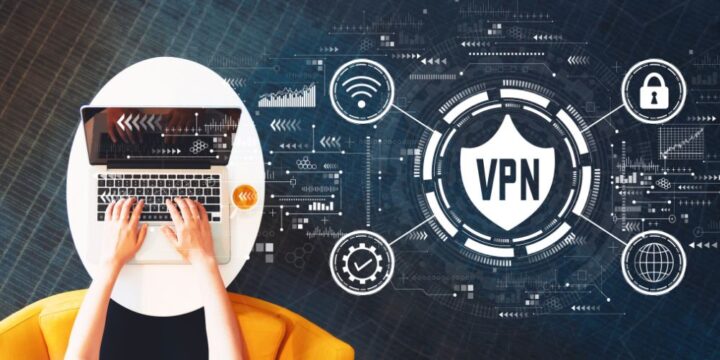Should You Keep Your VPN On All the Time?

Introduction
Yes, you should utilize your VPN most of the time, but not constantly. It depends on the initial purposes for which you use a VPN. It makes sense to toggle your VPN on or off for those uses if you use it to stream your favorite TV shows. For non-stop security, you can use a free router VPN to protect all your devices simultaneously.
However, if you use a VPN to protect your privacy or to remain anonymous online, you should always leave it on. Having your VPN on while you’re online is essential because it offers the best defense against hackers and helps keep your information secure.
When Should You Keep Your VPN On?
1. While Online Banking
While hackers may try to steal your connection, a VPN to encrypt your data will shield your online banking activity from prying eyes and outsiders.
Some of the most concerning cyberattacks are banking and credit card fraud since they are furiously intensifying during a pandemic that has forced everyone online. In actuality, databases chock-full of credit card information are abundant on the dark web and frequently traded between hackers for some money.
A man-in-the-middle cyberattack involves a hacker hiding between your device and the internet connection to steal your data while it is being transmitted. Since banking websites are always encrypted, your information should be secure there. However, there are other instances where your information might be compromised, such as when you use a public wi-fi network and conduct business or if you make a payment on a website that isn’t encrypted. To properly protect your data and encrypt any internet connection, you should always utilize a VPN.
2. Bypassing Firewalls
In terms of regulating, restricting, or even blocking the information that passes through, firewalls are to the internet what a secretary is to an owner. This feature aids in network security by preventing malicious behavior.
A firewall is typically active at your institution, school, or place of employment to safeguard other network users. Users are identified by their device’s IP address, although occasionally, this IP address can change if, for example, you move abroad. When this happens, firewalls may respond by denying you access.
With a VPN, you can connect to servers in other countries to get around firewalls.
3. Minimize Bandwidth Throttling
Internet service providers frequently reduce subscribers’ internet speeds. This usually happens when such people are consuming a lot of data. For instance, if you frequently game or stream content online, you can fall victim to this. This issue can be solved with a VPN. This is due to the secure tunnel a VPN offers also blocking your ISP. This implies that if you stream or play video games frequently, it’s preferable to leave your VPN active.
4. Using Public wi-fi
Connecting to public wi-fi is one of the riskiest things you might be doing without a VPN. Although it may seem absurd, not all publicly accessible hotspots are created with the finest intentions.
Hackers may use wi-fi networks to steal information about you, like your passwords for online accounts, personal data, or browsing patterns. They might even be able to access your computer remotely and place dangerous malware on it.
Fortunately, this can be avoided by utilizing a trustworthy VPN while using public wi-fi. All would-be snoopers won’t be able to decrypt your surfing data because it will be encrypted.
Should You Leave Your VPN On All The Time?
A VPN’s main purpose is to increase your security. Most VPN providers make great efforts to ensure that their services are outfitted with tools that excel in that capacity. This indicates that you stay safer for longer when your VPN is always active. As a result, you won’t have to stress about switching the settings at any time or wondering if you accidentally entered a risky website when your protection was disabled. When your VPN is active, you may feel secure knowing that you have complete internet protection.
By constantly using a VPN, you may maintain access even in a region where some platforms are restricted. For instance, in some nations, Twitter is not available. A VPN also helps you get around the restriction by enabling you to connect to a server in a location where the service is not restricted. You won’t even notice the ban if your VPN is always enabled and connected to a supported region.
Conclusion
For the protection of your personal data, VPNs are an effective cybersecurity tool. By connecting to a distant server, you can get around geo blocks and restrictions and even shop online for a great deal. However, you don’t always need to keep your VPN connection. In some circumstances, turning it off for a while is even useful. If security is your top priority, you should keep your VPN active whenever you are online.
